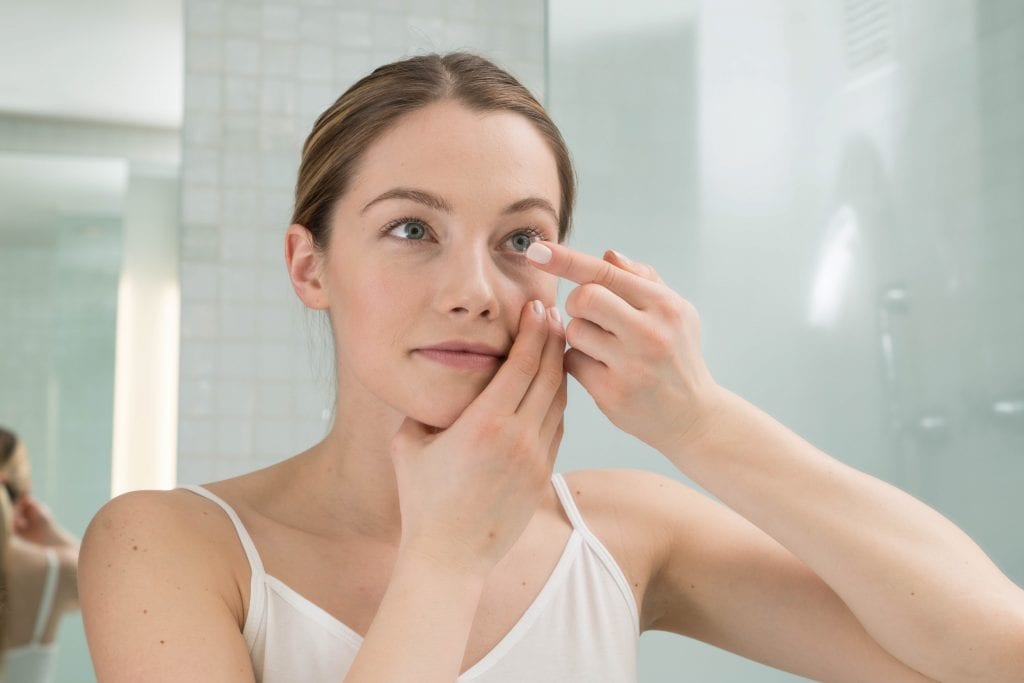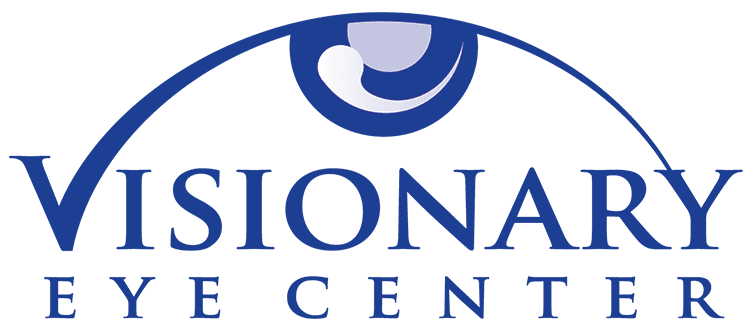SHOP DRY EYE CARE TODAY!
Use code VISIONARYEYE20 at checkout for 20% off!
For those that suffer from nearsightedness (myopia) or astigmatism, there may be a better solution out there for you than wearing corrective lenses daily or undergoing risky surgery. The latest method of myopia control in Reno is the use of orthokeratology, or ortho-k, which is accomplished through a retainer lens worn solely at night while you sleep. Not only is ortho-k a great treatment for patients seeking unique or custom eye care, it also offers freedom from the hassles of daily wear correction methods like soft contact lenses and glasses.
If you or someone you know is struggling with myopia or astigmatism and the traditional treatment methods aren’t meeting your active lifestyle needs, connect with Northern Nevada optometrist Dr. Bolenbaker to discuss the possibility of starting orthokeratology.

Orthokeratology, also called ortho-k, corneal refractive therapy, or gentle vision shaping, is a non-surgical method of reshaping the cornea for improved vision. Ortho-k is a custom eye care solution that uses fitted corneal molds and retainers to put gentle hydraulic pressure on the cornea that flattens its surface to correct the way your eye takes in light. It works similarly to LASIK with the risks of surgical complications and dry eye. And unlike contact lenses worn during the day, ortho-k treatments work overnight so you are free from correction while you are awake.
To fully understand how orthokeratology works, you first have to understand how our eyes take in light and transform it into an image that we’re able to see. When light rays are focused properly through the cornea and reach the retina, you see a clear image. When there is a mismatch between the curvatures in the cornea and the length of the eye, light cannot be focused properly thus resulting in blurred vision.
Ortho-k works to reshape the cornea so that incoming light bends accordingly, presenting a clearer image. Unlike everyday contact lenses that are worn to correct vision while awake, ortho-k lenses use gentle hydraulic forces to temporarily reshape the cornea for prolonged effects. Wearing the molds at night results in effects that last well into the next day which is why this has become a preferred method of myopia control in Reno for active children.

Good candidates for the ortho-k treatment include patients with mild to moderate myopia or nearsightedness, or those with minor astigmatism. Orthokeratology is FDA approved to correct nearsighted patients with prescriptions under -6.00D of myopia and less than -1.75D of astigmatism. Children make great candidates for this method of myopia control due to their typically mild symptoms and flexible corneas. Adults that would prefer a non-surgical correction option may also be a great candidate.
Myopia, more commonly known as nearsightedness, is a refractive error that causes blurred vision when looking at objects that are far away. This is typically due to axial elongation, making the eye longer than the cornea curvature can focus the light taken in by the eye. Ortho-k has been shown in multiple studies to slow the elongation of an of the eye. It is hypothesized that the peripheral myopic defocus along the horizontal and vertical meridians of the eye induced by wearing ortho-k molds tricks the eye into thinking it has grown too long, halting the signal for continued growth. If the eye does not continue to grow, myopia progression is decelerated, thus slowing the worsening of your nearsightedness.
As with any sort of corrective lens to improve vision, there may be some risks involved, however, the risk of adverse effects caused by ortho-k is extremely low. The symptoms you may experience while using orthokeratology are very similar to the risks associated with wearing traditional contact lenses. Essentially, the risks can easily be prevented and managed with good hygiene practices.
Ultimately, the benefits of ortho-k largely outweigh the risks associated with the treatment method. One of the most notable benefits of orthokeratology is its ability to effectively improve vision while the patient is asleep, thus not impeding their daily activities. The most common list of risks and benefits are as follows:

Here, at the Visionary Eye Center, we strive for customized eye care solutions for our Reno-Sparks patients. As each patients’ needs are unique, our treatment should be as unique as you.
 775.827.1100info@visionaryeyecenter.com8175 South Virginia Street Suite B-900
775.827.1100info@visionaryeyecenter.com8175 South Virginia Street Suite B-900